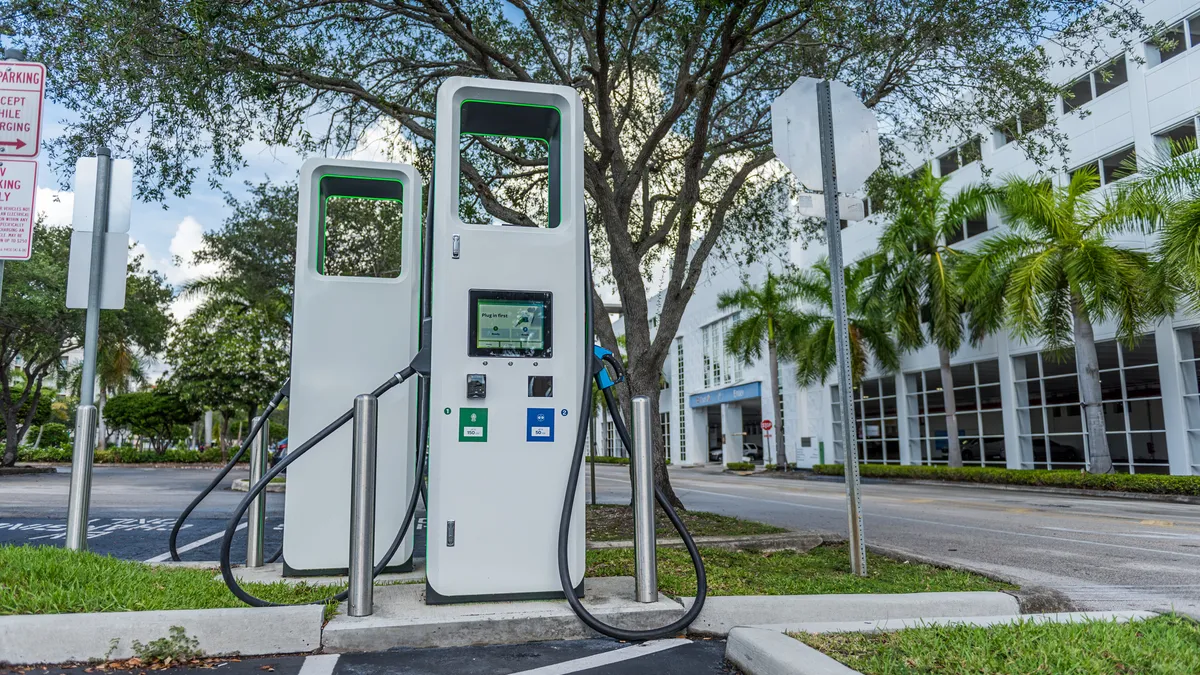Dive Brief:
- The U.S. Department of Transportation published the “Urban Electric Mobility Toolkit” on its website Wednesday to help larger communities take advantage of federal funding for electric vehicle charging stations and other forms of electric transportation.
- Cities, states, metropolitan planning organizations, transportation providers, nonprofits, businesses and property owners and developers can also use the resource to find partners for and plan electric vehicle charging projects.
- “Building an affordable and accessible public charging network will help make electric forms of transportation more convenient for the 71% of Americans who live in communities with a population over 50,000,” the Department of Energy said in a press release.
Dive Insight:
Government and industry have an unprecedented opportunity to expand micromobility and support the transition to EVs, with the rapid rise in sales of new electric vehicles, growing popularity of e-bikes and shared e-scooters and federal funds from the 2021 infrastructure law and the Inflation Reduction Act.
“Right now, there is incredible energy and momentum in communities across this country to transform and electrify our transportation system to ensure that every American has access to convenient, affordable, and reliable mobility options,” said Gabe Klein, executive director of the Joint Office of Energy and Transportation, in a press release.
The expansive online toolkit provides basic information on electric mobility, planning information to support electric mobility infrastructure, resources for funding and partnerships and information on relevant laws and executive orders. Another section of the toolkit lays out the benefits of urban mobility electrification and the challenges of implementing the necessary charging infrastructure.
According to the DOT, 158 communities in the U.S. had access to shared e-scooters in 2022 and many of the 96 bike-share systems in operation last year offered e-bikes. The DOT says on its website that urban mobility electrification creates job opportunities, improves air quality, lowers greenhouse gas emissions and reduces vehicle noise.
The DOT accepted applications this spring for the first $700 million of the $2.5 billion, five-year Charging and Fueling Infrastructure Discretionary Grant Program to support community and neighborhood electric vehicle charging infrastructure.
Separately, last year the Federal Highway Administration approved electrification plans funded by the $5 billion federal National Electric Vehicle Infrastructure formula program for all 50 states, D.C. and Puerto Rico. Hawai’i will become the first state to roll out these charging stations, the state’s Department of Transportation announced this week.












